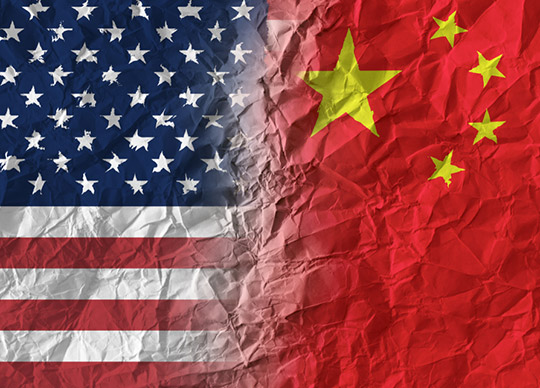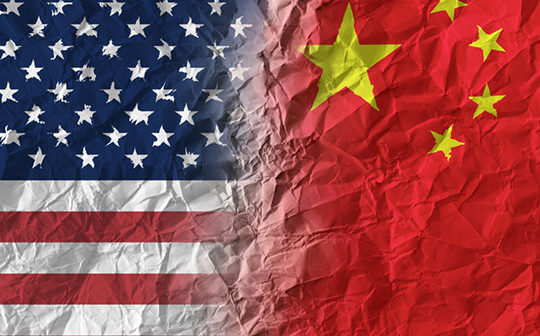
It goes without saying that China is becoming a very large and serious power. Since the late 1970s, China has grown exponentially as an economic powerhouse, combining standard Capitalist and Communist economic models while being set “to become the world’s largest economy by 2028”.
Militarily, within the past twenty years, China has evolved from “a sizable but mostly archaic military” to one that is ahead of the United States in the form of shipbuilding, air defense systems, and conventional ballistic/cruise missiles while also taking steps to become pioneers in cyberwarfare and introducing “new military hardware” into their military systems. China has, diplomatically, militarily, and economically become a truly imposing force and poses a real threat to U.S. and Western interests in the Asia-Pacific region and elsewhere.
Given the extreme importance that China has upon global affairs, it is apparent that a new shift has come with the Biden administration. Recently, at the G7 summit, President Biden tried to “persuade fellow democratic leaders to present a more unified front to compete economically with Beijing” by calling out China’s human rights abuses while also considering opening up talks with Xi Jinping to discuss these issues. This is a marked shift from Trump’s more Chinese benefiting policies.
In my view, countering China’s long-term ambitions or goals is difficult as, like the United States, they are quite sure of themselves and their positions and are determined to succeed in their individual desires. The American position on China is also in need of reform and reworking.
The Center for American Progress has described U.S. policy in dealing with China in this way, stating, “the United States has pursued a strategy that is fundamentally flawed. Instead of channeling public resources to support American innovation and invest in American workers, Washington assumed the United States could coast on a combination of natural comparative advantages and status quo technology dominance, much of which stemmed from investments made decades earlier. That approach has not worked. China is investing heavily in emerging technology sectors—such as artificial intelligence and next-generation mobile communication—to successfully chip away at U.S. technology leadership and global market share. However, in the United States, many workers are unable to find good jobs in the information economy. In sum, the United States has lagged on the very areas of strength it needs to compete against an increasingly powerful China”.
U.S. policy has been one that, at first, has ignored China, with it only being recently that the U.S. has actually started paying attention to the serious economic and technological challenges and threats that China has. Examining just one issue, it is known that the U.S., in a technological and cybersecurity format, is massively unprepared for cyber threats and technological intrusions by hacking groups, foreign powers, and individual hackers looking to siphon information.
It is known as well that China is one of the largest perpetrators of cybercrime and are immensely capable of committing electronic and technological intrusions of U.S. systems and infiltrating the private industrial sector. In terms of what the U.S. can do to combat this and to form a front against increased Chinese ambitions that may be harmful to domestic policies and American interests, the U.S. should create an alliance combined with similar world powers to stand against increased Chinese economic and technological dominance and commit more resources and effort towards improving the security of our industrial and technological forms.
Center for Strategic and International Studies recommends a similar approach, though they recommend this in dealing with Xi Jinping’s economic strategy, the Belt and Road Initiative. They recommended that, “The U.S. government should take the lead to develop and implement a formal integrated multilateral infrastructure development mechanism that can effectively compete with the BRI to counter China’s geopolitical gains.
Toward this end, an Infrastructure Development Coalition (IDC) should be formed by combining the national infrastructure development programs and initiatives from the United States, Japan, Australia, New Zealand, India, France, and Germany. Only by combining the resources and expertise of these programs can the United States and its allies and partners effectively compete with the BRI. More importantly, what will allow the United States and its allies and partners to counter the BRI’s geopolitical gains is how the organization, structure, and strategic focus of the IDC synergizes the capabilities of each nation’s development program”.
Having a tactic like this is potentially an effective one and would limit the reach of China’s economic plan. A unified front too would prove to strengthen relationships with our allies and would allow the U.S. to try and counter Chinese interests.
There are many areas that must considered when using military power or force to deter an enemy from gaining further ground or influence without provoking a conflict that leads to physical combat. In my opinion, one of the best ways to combat Chinese influence is to gather the necessary allies to make a collective stand against aggression and improving our own country’s security and internal defenses against infiltration; these recommendations are similar to what the Pacific Council on International Policy has recommended.
As I mentioned previously, China is exhibiting a stunningly effective ability to infiltrate U.S. government computer systems and databases and are exceptionally adept at cyber intrusion and industrial CI (counterintelligence) operations. Improving our country’s counterintelligence reserves and the ability to root out foreign operatives is essential to combating any enemy, but especially Chinese intelligence. The Pacific Council suggests, “Leveraging China’s desire for stability and prosperity at home to discourage destabilizing behavior, and to encourage its active participation in tackling global challenges…Rather than engaging in transactional bargains, U.S. leaders should continue to make the case to their Chinese counterparts that Beijing should refrain from provocative behavior, such as blocking sea lanes or freedom of navigation in disputed territories, and cooperate to solve global challenges like the North Korean nuclear crisis, because it is in China’s long-term strategic interests to do so. Chinese leaders, including Xi, have reiterated over the years in speeches and in major strategic documents that China seeks to contribute to peace and stability in the world—and the United States should hold Chinese leaders accountable to this promise”.
This is certainly an interesting tactic, applying pressure to force the Chinese government to hold up to the values they often claim to be for and appealing to the common threat of North Korea are viable tactics that may potentially work. As well, working with such a large adversary on a tactic both can find equal ground in may work in rebuilding or repairing the relationship and can assist in fixing incidences or problems that may occur within the South China Sea.
Author Bio
Alan Cunningham is a graduate student at Norwich University pursuing an MA in International Relations. He has gained admission to a PhD in History program at the University of Birmingham in the UK and will begin work as an AP U.S. History Teacher. He aims to become a U.S. Navy Officer in 2022. He has been published in the Jurist, Security Magazine, and the U.S. Army War College’s War Room among others.






